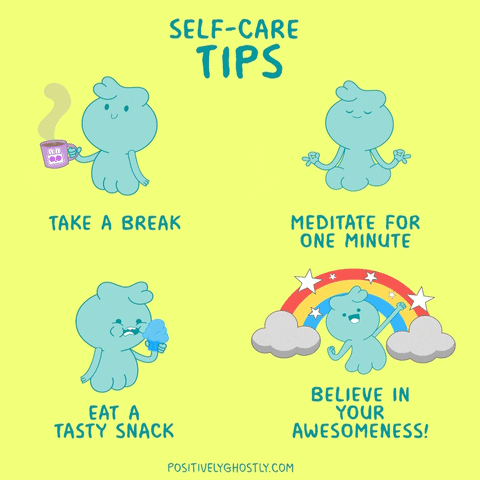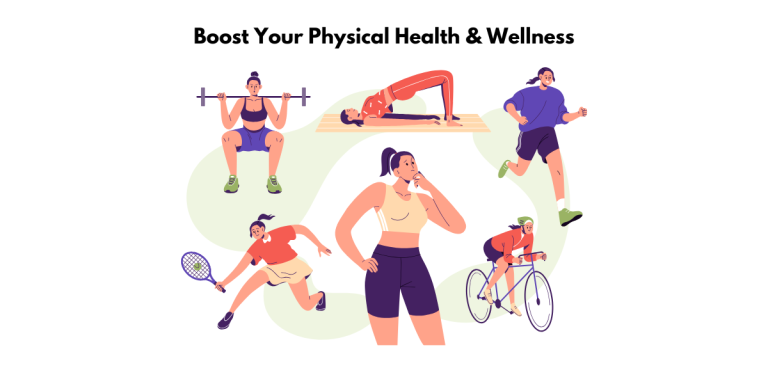How to Practice Self-Care: The Ultimate Guide to Practicing Better Self-Care
Understanding the Concept of Self-Care
Understanding the idea of self-care is instrumental to incorporating it into your lifestyle. In essence, self-care is a “conscious and purposeful engagement in strategies that promote healthy functioning and enhance well-being.” It’s about ensuring that our own physical, emotional, and mental health needs are met. Self-care is a personal responsibility; no one else can do it for you.
Self-care is essential for building resilience against life’s unavoidable stressors. When you’ve taken steps to nurture your mind, body, and spirit, you are in a better position to prosper. Despite its importance, a myriad of individuals see self-care as a luxury and not a necessity, often leading to a state of overwhelm and fatigue, incapable of handling life’s inevitable challenges.
The Various Types of Self-Care
Physical Self-Care: The Basis of Health
Practicing physical self-care is more than just eating right and exercising regularly. It also encompasses getting adequate rest, staying hydrated, absorbing sufficient sunlight, and tuning into your body’s unique needs. Here are some ways to guarantee you remain in good physical condition:
- Eat a well-rounded diet: Consuming nutrient-rich foods and skipping out on ultra-processed meals is a surefire way to keep your body functioning at its best.
- Get moving: Regular exercise, whether walking for 30 minutes daily or hitting the gym, contributes to overall health and well-being.
- Adequate rest: Try to aim for 7 to 9 hours of sleep per night. Quality sleep refreshes your body and mind, helping you wake up rejuvenated and ready to tackle the day.
- Stay hydrated: Drinking water, especially upon waking, is crucial for overall body performance.
- Sunlight and nature: Spend time outdoors; absorb Vitamin D and reconnect with nature to boost your mood and energy levels.
- Pamper yourself: Indulge in a hot bath or spa day. Such activities can replenish not just your body but your spirit as well.
Remember the age-old saying, “A sound mind in a sound body.” It still holds water today because our mental and emotional health relies heavily on our physical well-being.

Emotional Self-Care: Managing Your Feelings
Emotional Self-Care, often underestimated, holds equal significance to its physical counterpart. It involves being in tune with, understanding, and accepting your emotions. Emotional self-care enables you to create an internal safe space, allowing you to experience and honor your feelings and recover from emotional wounds.
Emotions wield the power to manage your behavior, thus learning to navigate them efficiently is pivotal to your mental health. Here are several ways to practice emotional self-care:
- Set Healthy Boundaries: Protect your energy by understanding your limits and explicitly communicating them to those around you.
- Indulge in Alone Time: Spending time by yourself, devoid of distractions, lets you focus on your internal state.
- Journal Your Feelings: Writing down what you feel is an excellent way to process and manage emotions.
- Speak to a Therapist: A professional can provide objective, expert guidance on how to handle challenging feelings.
- Practice Self-love: Nurture positive regard for yourself, and show kindness and patience towards your emotions.
- Write Down Positive Affirmations: Affirmations reinforce positivity and help regulate emotional distress.
- Call for Help: Don’t hesitate to ask for assistance when your emotions feel overwhelming. Asking for help isn’t a sign of weakness; it demonstrates strength and self-awareness.
To maintain emotional wellness, you must not repress and ascertain feelings, even if uncomfortable. By processing emotions healthily and regularly, you can increase empathy, teach yourself coping mechanisms for difficult feelings, and significantly improve your overall emotional self-care.
Mental Self-Care: Nourishing Your Mind
Mental Self-Care involves nourishing your mind and promoting psychological well-being. It includes doing mentally stimulating activities, such as physical exercises, reading books, learning new hobbies, or any other task that fuels your mind. Mental self-care practices are crucial for improving brain functionality and promoting a growth mindset, allowing us to process information more easily and without distortion.
Here’s how you can foster better mental health:
- Seek Mental Stimulation: Engage in activities or hobbies that challenge your brain and keep it sharp, such as puzzles, quizzes or learning a foreign language.
- Setting Goals: Whether big intentional goals or mini personal ones, setting targets and working towards their achievement can stimulate mental growth.
- Mindful Reading: Engaging in personal growth or self-help books can fuel your mind with positivity and motivate you for personal development.
- Journaling: Writing your thoughts & experiences is therapeutic and aids in mental clarity.
- Practicing Gratitude: Reflect on the things you are grateful for. It boosts mood and keeps you grounded.
- Social Media Detox: Occasional digital detoxes help maintain a healthy mental space.
- Practicing Self-Compassion: Maintaining a healthier inner dialogue aids in mental health.
Mental self-care is an essential part of daily life. It keeps our cognitive thinking capabilities in the best shape possible, essential for a fulfilled, balanced lifestyle. Remember: caring for your mind is as crucial as caring for your body. You can’t ignore one without affecting the other.

Social Self-Care: Building Healthy Relationships
Social Self-Care is centered around nurturing our relationships, vital for our overall well-being. Despite its importance, social self-care is often overlooked. This aspect involves building and maintaining healthy relationships with family and friends, cultivating a sense of belonging and acceptance.
Our social connections make us feel loved, understood, and less alone. Also, these connections are crucial in developing and improving our communication skills, understanding diverse perspectives, and creating a supportive social network.
How do we engage in social self-care? Here are some strategies:
- Forge New Relationships: Engage in activities or groups that revolve around your interests. These can foster connections with like-minded people and contribute to positive new relationships.
- Rekindle With Old Friends: Revive the lost bond with old friends; reconnecting might help you relax and spread happiness.
- Express Gratitude: Appreciating a friend’s presence in your life and expressing gratitude can uplift both your and their spirits.
- Set Healthy Boundaries: It’s essential to practice setting boundaries. Not doing so can lead to feeling overwhelmed, burnt out, and mentally exhausted.
- Limit Time with Negative People: Disconnect from people who leave you feeling drained. Your peace of mind is your priority; act accordingly.
- Nurture Current Relationships: Spend quality time with loved ones, actively engage in conversations, and be empathetic, and supportive.
Although schedules can get busy, setting dedicated time for socialization is key to robust mental health. Understanding your social needs and incorporating them into your lifestyle enhances your social self-care.
Spiritual Self-Care: Feeding Your Soul
Spiritual self-care involves practices that tap into your internal being, providing deeper purpose and meaning to life. It does not necessarily relate to religious practices, but rather to activities that nourish your spirit and align you with your values and principles.
Spiritual self-care helps silence the noise of the world, mediating inner calm and peace. Feeding your soul involves activities that promote spiritual growth and induce a sense of peace, tranquility, and positivity. Here are some practices to help you nourish your spirit:
- Meditation or Breathwork: These practices help in finding inner peace, silencing random thoughts, and enabling a calm mind.
- Engaging in Prayer: If you are religious, prayer can be a profound source of solace and peace.
- Spending Time in Nature: Nature can imbue a sense of awe and wonder, that there is something greater than us.
- Practicing Yoga: Physical postures, breathing exercises, and meditation reduce stress and promote physical health.
- Mapping Out Your Core Values: Understand what matters to you most and ensure you are living a life that reflects these values.
- Self-reflection: Dedicating time to ponder who you are, your purpose and your place in the world can be fulfilling.
Financial Self-Care: Ensuring Monetary Stability
Financial Self-Care pertains to the practices that help you maintain and enhance your financial health. As strange as it may sound, your finances significantly affect your mental and emotional well-being. Financial stress can lead to a decrease in life satisfaction and an increase in anxiety, depression, and psychological distress.
It is not just about saving or investing money; it’s about developing a healthy relationship with money and making informed decisions regarding spending, saving, and investing. Here’s how you can practice financial self-care:
- Establish Financial Goals: Identifying your financial objectives, such as paying off debt or saving for retirement, is the first step towards financial self-care.
- Budgeting: Create a budget and stick to it. Regular monitoring of income and expenses will offer you a clear idea about your financial health.
- Educate Yourself: Always seek to improve your financial literacy. It’s a reliable predictor of happiness and financial stability.
- Plan for Emergencies: Setting aside funds for emergencies can provide peace of mind and reduce the stress of unexpected expenses.
- Avoid Impulse Buying: Impulsive purchases often lead to regret and can destabilize your budget and savings.
- Dealing with Debt: Tackle your debts head-on, devise a repayment plan, and consult a professional if necessary.
- Invest: Secure your future by investing money wisely. Be it in property, mutual funds, stocks, or even your education, smart investments reap future benefits.
By practicing financial self-care regularly and maintaining a focus on financial hygiene, you can efficiently relieve the burdens of financial stress and cultivate a healthier relationship with money.

Incorporating Effective Self-Care Practices into Your Daily Life
Simple & Accessible Everyday Self-Care Practices
Simple and Accessible Every day Self-Care Practices are smaller, convenient activities that you can incorporate into your daily routine. These practices help you maintain and improve your overall health and well-being. Here are some effortless activities that are easy to introduce into your routine:
- Healthy Eating: Consuming a nutrient-rich diet is one of the most efficient ways to take care of your physical health.
- Walking: Taking out the time to walk every day, preferably during daylight hours, can improve mood, boost energy levels, and provide a healthy dose of vitamin D.
- Hydration: Drink plenty of water throughout the day to rejuvenate your system.
- Reading: Mindfully reading can not only educate but also serve as a stress relief.
- Mindfulness: Pay intentional attention to what you are doing at a given moment without judgment. It helps improve focus and reduces stress levels.
- Deep Breathing: Deep breathing relaxes your nervous system, decreases overall tension, and combates stress.
- Social Interaction: Plan a quick catch-up with a friend, relative, or colleague at work. These short interactions can boost your mood and provide emotional comfort.
Quick Self-Care Techniques for Busy Schedules
In today’s fast-paced lifestyle, finding time for self-care amid work deadlines, domestic chores, and other commitments can be challenging. However, self-care is crucial, and several techniques can fit even the busiest of schedules. Here are some quick self-care methods to help maintain balance in a packed day:
- Micro-Meditations: These are brief pauses to reconnect with yourself, taking as little as one to five minutes. They help in alleviating stress and inducing calmness.
- Break-Time Walks: Use your short breaks at work for a walk around the block. It gets you moving and disconnects you from work for a while.
- Mindful Eating: Enjoy your meal without any distractions. This will not only make you savor your food but also serve as a mental break.
- Gratitude Journaling: Take five minutes to write what you’re grateful for. This practice can shift your mindset and mood.
- Digital Detox: Designate ‘phone-free’ times during your day. The constant barrage of notifications and news can be overwhelming.
- Breathing Exercises: Doing deep-breathing exercises even for a couple of minutes can reduce anxiety and introduce a feeling of calm.
- Say No: It’s important to understand it’s okay to refuse additional responsibilities when you’re overwhelmed.
Self-care doesn’t need substantial time investments. As suggested by Shelly Tygielski, a grassroots meditation activist, even one-minute practices can rejuvenate your mind. The key is to consciously find those little pockets of time throughout your day and utilize them for self-care. It’s not the duration but the consistency of practice that matters.

Specific Ways to Relax and Become More Relaxed
Strategies from Mindfulness & Meditation
Drawing upon mindfulness and meditation, we can cultivate inner tranquility and combat the stress of daily life. These strategies enable us to pay attention to our current moment, without judgment. They encourage emotional healing and foster a positive relationship with ourselves.
- Deep Breathing Meditation: Sit comfortably and inhale deeply through your nose for a count of four, allowing your stomach to rise. Hold your breath for a second before slowly exhaling through pursed lips for a count of four. Repeat this process several times to promote relaxation.
- Mindfulness Meditation: Focus on your breath and notice what passes through your awareness at the moment, avoiding judgment. If your mind becomes preoccupied with thoughts, gently bring back the focus to your breath.
- Visualization: Close your eyes and imagine a peaceful haven—such as a forest, beach, or garden—and engage all senses. This practice helps cultivate a sense of calm and relaxation.
- Repeating a Mantra: Select a meaningful or calming word or phrase, and repeat it silently or quietly. Doing so can help elicit a physical relaxation response.
- Participate in a Meditative Form of Exercise: Tai chi or Qi Gong, with their flowing movements and mindful breathing practices, can offer a form of moving meditation, promoting both physical and mental balance.
Practicing mindfulness and meditation brings a variety of benefits, including reduced stress, improved concentration, and greater self-awareness. Start with a few minutes each day and gradually increase the time as you grow comfortable with the practice. As mindfulness educator Jon Kabat-Zinn highlighted, “Mindfulness means being awake. It means knowing what you are doing.”
Implementing Lifestyle Changes for Improved Relaxation
Implementing lifestyle changes can significantly aid in achieving a relaxed state of mind and body. These changes need not be drastic; simple shifts in behavior can have profound effects on your overall well-being:
- Regular Exercise: Regular physical activity releases happiness-inducing endorphins that help fight off depression and anxiety, leading to a relaxed and positive mindset.
- Healthy Diet: Including nutrient-rich foods in your diet to provide the right fuel for your body can significantly impact energy and mood levels.
- Proper Sleep Hygiene: Ensure you’re getting 7-9 hours of sleep each night. Consider implementing a bedtime routine and make your sleep environment comfortable and inviting.
- Limiting Caffeine & Alcohol: Excessive consumption of caffeine and alcohol can induce anxiety and disrupt sleep. Try reducing your intake for better mental health.
- Digital Detoxing: Excessive screen time can cause digital fatigue. Try to designate specific time slots in your day without screens.
- Connecting with Others: Surround yourself with people who lift your spirits and understand you. Positive social interactions can have a soothing effect on your mind.
Remember, change doesn’t happen overnight, and it’s essential to gradually and sustainably incorporate these practices into your lifestyle. Start with one or two changes and gradually introduce more as you begin to notice the positive impact on your relaxation levels.

Self-Care and Professional Help
Recognizing When to Seek Professional Help
While self-care practices contribute greatly to maintaining mental health, they may not be enough for some individuals, particularly those experiencing severe or distressing symptoms. Recognizing when to seek professional help is a critical aspect of self-care.
Talk about your concerns with your primary care provider, who can refer you to a mental health professional if needed. The web page of the National Institute of Mental Health provides valuable advice on how to find a suitable provider or get help.
Stigmatization of mental health issues often makes it hard for people to seek help, but remember, there’s no shame in asking for help. It’s an act of strength and self-care to recognize when professional help is needed.
The Joining Forces of Therapy and Self-care
The combination of therapy and self-care can create an immensely powerful tool for personal growth and emotional wellness.
A therapist can provide professional guidance, objective advice, and tools to improve various areas of your life while self-care activities contribute to maintaining that baseline of wellness on a day-to-day basis. Some ways they complement each other include:
- Goal Setting: Therapists can help you identify areas of improvement and set realistic goals. As part of your self-care routine, you work on those goals.
- Coping Mechanisms: Therapists can teach coping techniques for stress, anxiety, and other mental health issues. Through therapy homework or self-care routines, you can practice these skills.
- Mindful Living: Both therapy and self-care promote mindfulness and presence, which have been shown to decrease stress and increase happiness.
- Improving Emotional Resilience: Therapists aid in building emotional resilience. Incorporating self-care practices helps to strengthen and maintain this resilience over time.
Combining therapy and self-care is a holistic approach to mental health care. It not only aids in overcoming present challenges but also empowers you with tools and techniques to navigate potential future stressors, cultivating overall wellness and resilience.


